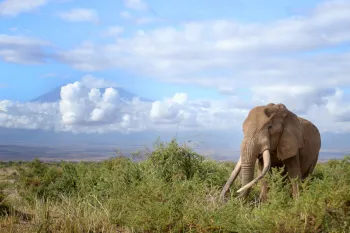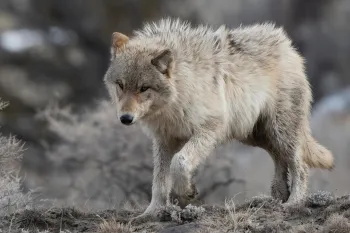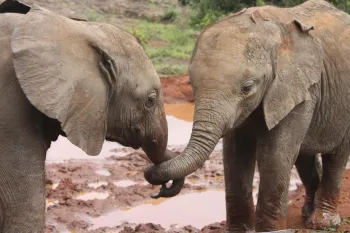With the ever-increasing threats and pressures on wild habitats associated with human development and climate change, it's nothing less than absurd that anyone today glorifies the trophy hunting and killing of endangered animals. But this is sadly still the case: For proof, we need look no further than Safari Club International's annual conference, which starts this week in Nashville. There, the delight in animal death is alive and well.
This is why it is essential to expose these cruelties of trophy hunting for what they are: a show of frivolous domination over animals and nature, fueled by a dangerous mix of gall and selfishness that values animals merely for their body parts, hacked off and taxidermized to hang on a wall, and not their lives, roles in family structures and their part in delicate ecosystems.
This week, our team in Africa released a new documentary that highlights the threat to East Africa’s super tusker elephants from renewed trophy hunting in the region. An elephant is considered a super tusker when at least one tusk weighs over 45 kilograms (100 pounds). It is estimated that fewer than 10 super tusker elephants remain in the Greater Amboseli ecosystem, with fewer than 50 left across the entire African continent. Their magnificent appearance puts them particularly in danger. Five super tusker elephant bulls from the Amboseli elephant population have been legally shot and killed over the past 18 months in Tanzania’s Enduimet Wildlife Management Area by trophy hunters.
Despite Kenya and Tanzania’s collaborative conservation efforts, including a 1995 moratorium to protect these cross-border elephants, the renewed killing of these iconic animals by trophy hunters in Tanzania, has once again threatened their existence.
Through interviews with influential Kenyan and Tanzanian community members, pastoralists, scientists and global conservationists, the short film investigates the tragic plight of super tuskers and their critical importance to the survival of the larger elephant population. Directed by award-winning documentary filmmaker Nick Chevallier, the film features our elephant expert Dr. Audrey Delsink explaining how super tusker bulls are indispensable to their families and their ecosystem.
When one of these animals is killed, it sends a destabilizing ripple effect through elephant families and herds, leading to increased aggression among younger males and even potentially escalating human wildlife conflict.
In the interconnected world we now live in, it is essential that countries work together in solidarity to protect the animals that make our planet wondrous. When trophy hunters travel to foreign countries to kill wildlife, it’s a harm to so many—the animal who lost his life, the family of that animal, the ecosystem which depends on that species, and the communities that might have benefited from more sustainable and humane ecotourism. Further, it normalizes a toxic attitude that sees human beings as entitled to freely dispose of nature in any frivolous way they choose.
This is why we work in the U.S. and Europe on restricting trophy hunting imports and expose illegal sales of ivory wherever we can. To ensure a future for big tuskers and their families for their own sake and for our children and grandchildren, we must work together to end both the glorification of animal death that leads to the demand for such hunts as well as any lax regulations or enforcement that allow such bloodshed to continue.
We remain committed to achieving both these goals, and we hope you do too. Learn how you can help save elephants.
Follow Kitty Block @HSUSKittyBlock.




